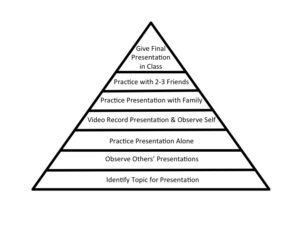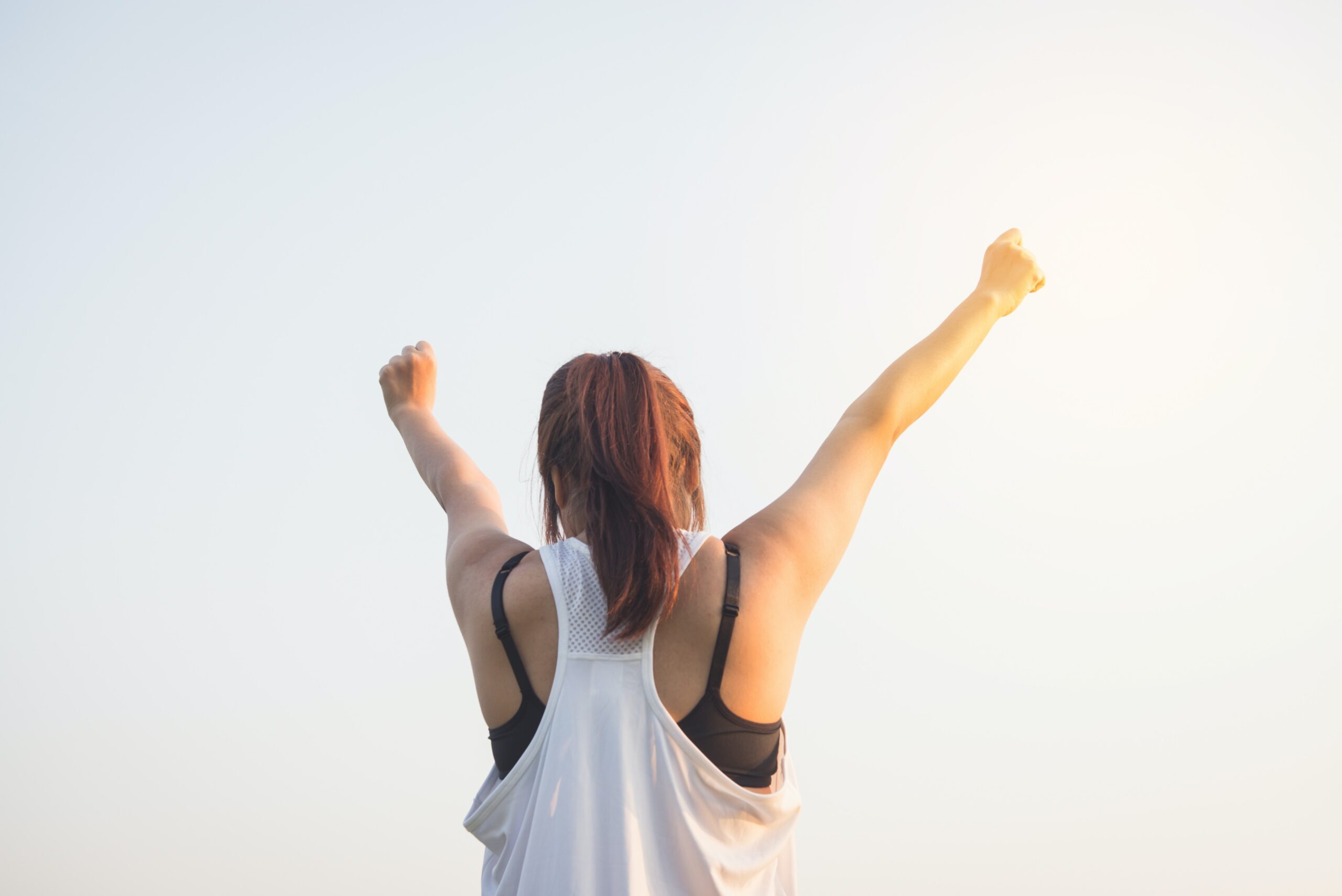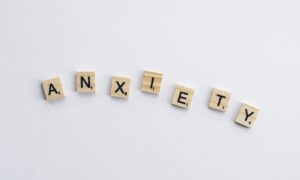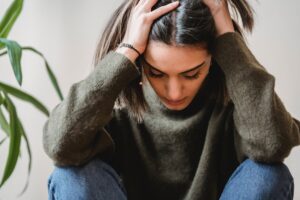How to Deal with Anxiety without Medication
Do you feel like anxiety is controlling your life? Are you struggling with anxiety symptoms, such as constant worries, chest pain, and insomnia? Want to learn how to deal with anxiety without medication?
If so, you probably can relate to Dinah’s story. Dinah is 24 years old, and she lives each day in fear. Every day Dinah faces symptoms of her anxiety disorder. Oftentimes, she feels like she can’t do anything without stressing. Dinah has anxiety that makes it hard for her to make decisions usually considered simple by the other people in her life, like where to eat for dinner or what movie to watch.
Dinah’s fears go beyond figuring out what channel to flip to; her anxiety often prevents her from going to certain events, speaking up in class, and just doing the things she wants to do in her life. Dinah feels like her life is not being controlled by her; instead, she is sitting shotgun while her anxiety steers the wheel. However, she also worries about the side effects of anti-anxiety medication.
If you have trouble managing anxiety too, we will discuss coping skills to deal with anxiety without medication
What is Anxiety?
Before we can talk about how to control your anxiety, we should address what anxiety actually is.
Anxiety is a mental, emotional, and physical condition. People who have anxiety feel affected by it in so many different areas of their life. They may deal with constant worrying thoughts while also feeling anxiety’s physical effects through shortness of breath or chest pain.
Anxiety makes someone experience worry, nervousness, or fear that is ongoing and excessive. This worry sticks with a person and harms their ability to function. Anxiety can prevent you from living your life normally or being happy. The anxious feelings may make you miss school, avoid spending time with friends, or even not leave your house for long periods of time. Admittedly, those people who suffer from this feeling would like to find the best ways to deal with anxiety without medication.
Types of Anxiety
There are different types of anxiety, including:
- Generalized anxiety
- Obsessive-compulsive disorder (OCD)
- Specific phobias
- Social anxiety
- Panic attacks
- Post Traumatic Stress Disorder (PTSD)
Knowing your type of anxiety can help you deal with symptoms, triggers, and stressors more efficiently.
Generalized Anxiety
Generalized Anxiety involves excessive worries about everyday life events for no obvious reasons. It apparently interferes with daily functioning. In other words, such constant and persistent worries negatively affect people physically and mentally.
Obsessive Compulsive Disorder (OCD)
Obsessive-compulsive disorder is a mental disorder that causes someone to have intrusive and repetitive thoughts. These thoughts can make someone very uncomfortable because they are unwanted. These repetitive, undesirable thoughts make up the “obsession” part of OCD. To try and end these obsessions, the person will engage in specific actions repetitively – this is the “compulsion” part of OCD.
Specific Phobias
When people have specific phobias, most of their fear and stress come from a certain thing in their life. Often, these fears are looked at, as the NIH puts it, as irrational and not actually harmful. For instance, flight anxiety, aka Aerophobia, or fear of flying, is a specific phobia when people are terrified thinking about flying many miles above the ground. It occurs to about 6.5% of the U.S. population according to NIMH.
Social Anxiety
Typically, social anxiety makes someone continually fear that others may scrutinize them or that they will make a fool of themselves. In turn, this constant worry leads to dread and even avoidance of social interaction, such as parties, public speeches, or ceremonies.
Panic Disorder
Panic attacks affect people physically and mentally. According to the APA, typical signs of a panic attack can cause a fast heartbeat, shortness of breath, chest pains, sweating, chills, trembling, numb hands, dizziness, nausea, and more. To some extent, symptoms of a panic attack mimic those of a heart attack. One in 10 adults in the U.S. have a panic attack each year and they usually begin between the ages of 15 and 25. When panic attacks happen more than two times and you constantly worry about having another one, it become panic disorder.
Post-Traumatic Stress Disorder (PTSD)
Finally, Post-Traumatic Stress Disorder (PTSD) is an anxiety disorder that can develop after exposure to a traumatic event or ordeal, that is, physical harm occurred or was threatened. These may include violent personal assaults, natural or human-caused disasters, accidents, abuse, or military combat
Is Anxiety Controlling My Life?
When learning how to control your anxiety, you may have to stop and think about anxiety’s hold on your life. Check in with yourself and ask these questions:
- Is my anxiety causing me to miss out on things in life?
- Do I have anxious thoughts all day?
- When was the last time I remember now being fearful regularly?
- Do I control my life, or is my anxiety controlling me?
Answer these questions honestly and be open with how you are feeling. You may not have realized how much control your anxiety has over your life and how long you’ve been enduring this stress, pressure, and discomfort. Here are some other scenarios that show you have taken the backseat to your anxiety.
You Feel Fearful Every Day
Each day, like Dinah, you may struggle to function normally. You feel like life is full of stress at each corner you turn. If you have a specific phobia of dogs, for example, you may fear every day when you see a dog walking down the street or in someone’s home. If you have OCD, you often will find yourself worrying and completing compulsions to “protect” yourself and your loved ones.
For example, someone may have an intrusive thought every day as they drive that they might crash or get into an accident. They drive and worry as each second passes by, wishing they were finally at their destination. This fear can become debilitating, and the person may want to stop driving for a while until they feel calmer about the whole thing.
You Miss Out on Life
As mentioned before, someone with a dog phobia may be so afraid of the animal that they decide to stay home and refuse to leave the safety of their home. Someone with social anxiety may do the same thing. In fear of being judged or laughed at by others, they will choose to stay out of the spotlight; this can be unfortunate if the person wishes things were different. Imagine someone is a really great singer. They sing alone in their room while belting out tunes and notes that only professionals seem to hit. Unfortunately, this person never gets to share their gift with the world because they are too anxious to ever go on stage or sing in front of others.
You Feel Like You’re Being Held Back
Once you take a step back and think about your life (maybe after asking yourself those questions from before), you start realizing that you are being held back by your anxiety. You realize that you can’t remember the last time you went out of your comfort zone, did something new, or pushed yourself to face your fears. Anxiety has had its grasp on you and has kept you from living the life you want.
You Want Things to Change
You may have been relying on anxiety medications for years. It helps, but you cannot live without it. That is, that Xanax or Ativan may give you the relief right away, but you recognize that anxiety and drugs have been controlling you! When you search “how to get rid of anxiety forever”, there are ways to treat anxiety naturally. In fact, the hope could be anxiety treatment at home.
How to Deal with Anxiety without Medication
Understandably, when anxiety controls you, you want to get your control back. To a lot of people, using medication could help to relieve the anxiety symptoms; however, many find it hard to tolerate the side effects and other issues associated with the anti-anxiety medicine, particularly the benzodiazepine type. Then the question comes to whether it is possible to deal with anxiety without medication? If so, How? Below we list seven tips to help you to cope with anxiety naturally.
1. Recognize What You Are Experiencing & Identify Triggers
It is important to recognize how you feel so you don’t ignore red flags that anxiety is taking over your life. Think about your life and use the questions mentioned before to gauge anxiety’s hold on your life. Start looking for how anxiety affects your life. Do you notice it:
- Mentally: Anxious thoughts cloud your mind. You constantly worry about something terrible happening to you, people making fun of you, losing control, etc.
- Physically: Your body is suffering from anxiety. Your chest hurts when you think about giving a presentation or talking in front of a big crowd.
- Emotionally: Your stress can really be taking a toll on your emotions. You feel sad that you are anxious all the time and that you are held back by your disorder.
2. Manage Stress to Prevent Anxiety
As we all know, too much stress is a big reason why you may have anxiety. One way you can learn how to deal with anxiety without medications is to engage in activities that will help to reduce stress. Anxiety usually causes people to either live in the past with regret or worry about the future. Take breaks from your work, study, TV, and social media. Acceptance, on the other hand, is a great way to face reality without fight or flight. Naturally you may want to hold on to things or people even if they stress you out. However, you can lower your stress level when you learn to let go certain issues. You can choose to create physical distance and stay away from nerve inducing media or people. Creating a positive mantra can help you to cope with stress as well.
3. Take Care of Yourself
Actually you may hear this a lot, listen to your body. What does it mean? It literally means that your body will complain to you with its own signs when you over use it. For example, having trouble sleeping and eating can be a message your body is unable to relax and unwind. By listening to your body, you may want to figure out what you have worried about and how to handle those worries.
After you get the message, the next step is to take care of yourself, that is, your body. Specifically, eat healthy, exercise, get plenty of sleep, and Practice hobbies or do things you enjoy by yourself or with others. Regular exercise, for example, helps to keep you physically active and improve your mood.
Meanwhile, it is important to avoid drugs and alcohol. Substance use may seem to help, but it can create additional problems in the long run. In addition to addiction, it eventually adds more stress to you. Overall, dealing with anxiety without medications is possible, that is, starting from staying away from drugs and alcohol.
4. Practice Grounding Techniques
Mindfulness practices like meditation, mindful eating or walking, etc., can help you center yourself and stay in the present moment. Grounding techniques are exercises that may help you to practice mindfulness and refocus on the present moment to reduce anxious feelings.
Specifically, Physical Grounding Techniques use your five senses or tangible objects to help you move through distress and deal with anxiety without medications. Typical examples include breathing, holding ice, putting your hands in water, and 5-4-3-2-1. Similarly, mental distractions to help redirect your thoughts away from distressing feelings and back to the present. For instance, counting numbers backward, categorizing and listing things such as colors or music instruments. Soothing grounding techniques can be another effective way to deal with anxiety without medications. These may include pet your dog, visualize your favorite places, or touch your stuffed animals or anything else comforting.
5. Vent to A Friend
In stressful situations or when we are trying to learn how to cope with stress, leaning on a friend can be helpful. Vent to a friend and talk to them when you are feeling down or discouraged. Your friend can help you focus on the present moment by doing fun activities with you, like seeing a funny movie or going on a new adventure together.
A friend can also help you with social anxiety by accompanying you to social situations. When you go out and start feeling stressed, your friend will be there to offer support and encouragement. Therefore, your loved ones can be great to help you to deal with anxiety without medication.
6. Challenge Your Thoughts & Your Comfort Zone
Apparently thoughts, feelings, and behaviors affect each other. Allow yourself to challenge your anxious thoughts could help to reduce your anxious feelings. For instance, when you get nervous about driving in a car, try to disprove some of your concerns. When you start to think, “I’m a terrible driver,” or, “I’m going to definitely crash,” remind yourself of the rational reasons why this probably won’t happen. You can think:
- I’ve never crashed my car before; why would I do so now?
- I am following the speed limit and ensuring safety while driving; what could really happen?
- Driving can be scary, but I am still doing it, and I should be proud!
Allow yourself to dare to leave your comfort zone and push yourself to try new things. Even if you fail or only stay somewhere new for a bit of time, you still make progress that you should be proud of! All the steps you take, even if they are small, add up to a big reward at the end of your journey. Obviously reframing your thoughts, without medication, you can deal with anxiety.
7. Consider Therapy to Deal with Anxiety Naturally
If you want to learn how to deal with anxiety without medication, Mind Connections wants to help you! Therapy can help people cope with stressors healthily and get back to living their life normally. Cognitive Behavioral Therapy, or CBT, can help you rewire your negative and anxious thoughts and reframe them in a more positive outlook.
Exposure therapy can also help people with social anxiety or phobias too. Exposure is a psychological intervention that is part of behavior therapy. It is considered one of the most effective techniques to treat fear and anxiety, including social anxiety.

You may be familiar with the concept of habituation. For example, you may be initially aware of the sound of an air conditioner when it is on; however, in a few minutes, you could tune out the noise and become unaware of it. The goal of exposure therapy is to use fear habituation to help you.
In other words, the more you are exposed to a feared situation, the less fear you will have eventually. We use the Fear Ladder to help people to expose themselves to a feared situation gradually till they reach the level of their most feared in social settings.
To learn more about therapy options for dealing with anxiety without medications, call Mind Connections now!
Content Creator, Victoria Gallo; Reviewed by Dr. June







